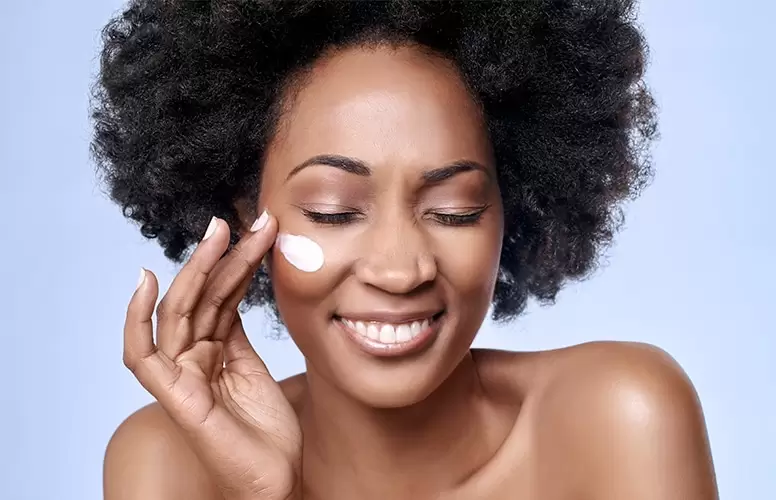If you’ve ever tried a sunscreen that left your face looking gray, chalky, or just plain weird under sunlight — welcome to the club. For far too long, melanin-rich skin has been left out of the SPF conversation, especially when it comes to tinted sunscreens.
The good news? Brands are finally catching up. The best tinted sunscreens for dark skin do more than just protect — they blend seamlessly, even out your tone, and leave you glowing (not ghostly). Whether you want sun protection that doubles as a skin tint, or a makeup-friendly base with skincare benefits, this guide is for you.

What You’ll Learn in This Guide
- The difference between tinted, mineral, and chemical sunscreens
- What ingredients work best for deeper skin tones
- Our top picks for 2025 — no white cast, no flashback
Let’s find your perfect match — because your melanin deserves SPF that shows up for you, not against you.
What Is a Tinted Sunscreen and Why It Works on Dark Skin
A tinted sunscreen is exactly what it sounds like — a sunscreen with added pigment. But unlike traditional sunscreens that can leave a white or ashy residue, tinted sunscreens are formulated with skin tone in mind. They offer UV protection and a touch of coverage to even out your complexion.
What Makes Tinted Sunscreen Different?
- Iron Oxides: These pigments help blend the product into deeper skin tones and provide extra protection against visible light — a major trigger for hyperpigmentation in Black skin.
- Multi-function: Many tinted SPFs also work as primers, foundations, or BB creams — perfect for no-makeup makeup looks.
- White Cast-Free: Tinted formulas are specifically designed to eliminate the dreaded gray or purple undertones that mineral sunscreens often leave behind on dark skin.
Why It Matters for Melanin-Rich Skin
Black and brown skin is more prone to post-inflammatory hyperpigmentation (PIH), especially after acne, cuts, or sun damage. That means sun protection is not optional — it’s essential. But if a sunscreen makes you look ashy or washes out your natural glow, you’re less likely to wear it consistently.
That’s where tinted sunscreens shine: they protect your skin and enhance your natural tone, not mask it. For many, they replace foundation entirely — especially in warmer months.
Mineral vs. Chemical vs. Tinted — Quick Comparison
| Type | How It Works | Pros | Cons |
|---|---|---|---|
| Mineral (Physical) | Reflects UV rays using zinc oxide or titanium dioxide | Great for sensitive skin, immediate protection | Often causes white cast on dark skin |
| Chemical | Absorbs UV rays and converts to heat | Lightweight, no white cast | Can irritate sensitive skin, not reef-safe |
| Tinted | Usually mineral base + pigment (iron oxides) | No white cast, light coverage, protects from visible light | May not match every skin tone exactly |
Ingredients That Work Best for Deeper Skin Tones
Not all sunscreen ingredients are created equal — and some of them just don’t work for melanin-rich skin. The best tinted sunscreens for dark skin use skin-safe pigments and protective actives that not only prevent sun damage but also help even out your tone.
Ingredients You Want in a Tinted Sunscreen
- Iron Oxides: Provide natural tint and protect against visible light — a major trigger for hyperpigmentation in darker skin.
- Zinc Oxide (Non-nano): Offers broad-spectrum UV protection without irritation. Works well when combined with pigment.
- Niacinamide: Calms inflammation, helps fade dark spots, and strengthens the skin barrier.
- Vitamin E: Antioxidant that supports healing and boosts sun protection when combined with other actives.
- Hyaluronic Acid: Keeps skin hydrated and plump without adding oil — great under makeup or solo.
Ingredients to Avoid in Sunscreens for Black Skin
- High concentrations of alcohol: Can dry and irritate the skin, especially in hot climates.
- Fragrance or parfum: Common irritants that can lead to PIH (post-inflammatory hyperpigmentation).
- Physical sunscreens without pigment: Like pure zinc oxide or titanium dioxide — these usually leave a white cast.
- Octinoxate and Oxybenzone: Found in chemical sunscreens — can be irritating and are not reef-safe.
Bonus Tip:
If you’re buying online, look for phrases like “no white cast”, “tinted for deeper tones”, or “suitable for dark skin” in the product description. But don’t just trust the label — always check the swatches or user reviews.
Top 5 Tinted Sunscreens for Dark Skin (2025 Picks)
We tested and reviewed dozens of formulas — and these are the best tinted sunscreens for dark skin that actually blend in, protect, and enhance your glow without leaving a white or gray cast.
1. Black Girl Sunscreen Make It Matte SPF 45
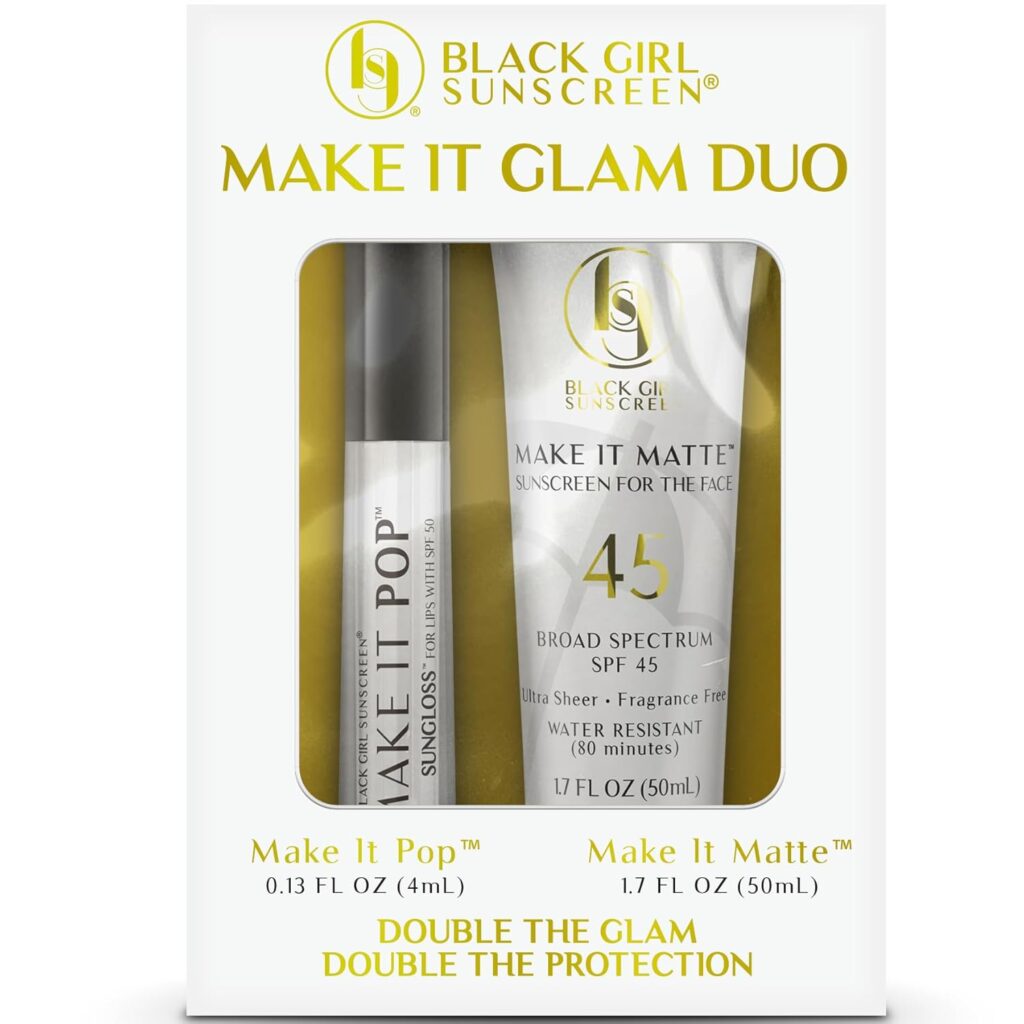
A cult favorite created by a Black-owned brand — lightweight, non-greasy, and perfect for oily or acne-prone skin. The matte finish makes it ideal under makeup.
- Best for: Oily or combination skin
- Tint: Sheer bronze glow (blends well into deeper tones)
- Pros: Fragrance-free, no white cast, Black-owned
- Cons: May not provide much coverage alone
2. EltaMD UV Elements Tinted Broad-Spectrum SPF 44
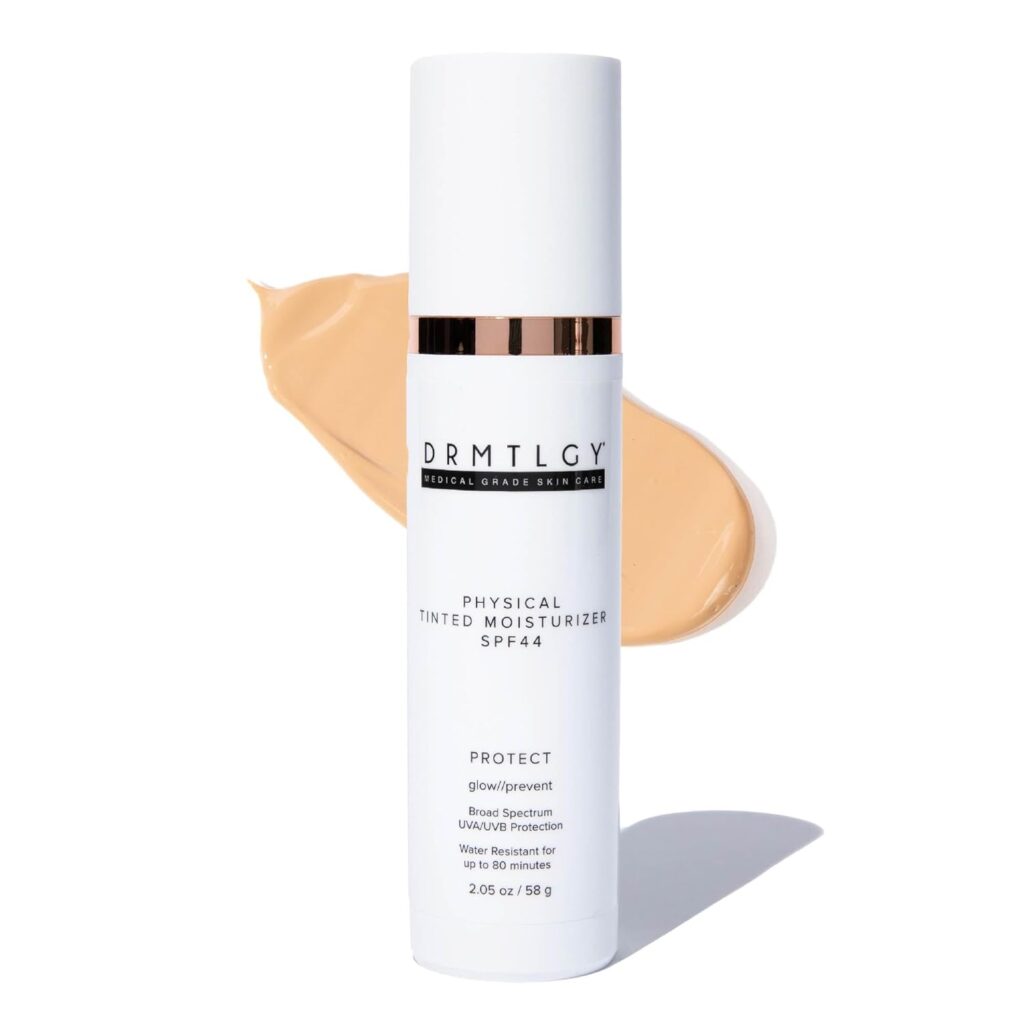
A gentle, mineral-based formula with tint. Great for sensitive or post-treatment skin. Blends surprisingly well into medium to deep complexions.
- Best for: Sensitive or mature skin
- Tint: Neutral universal tint (medium-deep match)
- Pros: Dermatologist-approved, calming formula
- Cons: More dewy than matte
3. Fenty Skin Hydra Vizor Invisible Moisturizer SPF 30
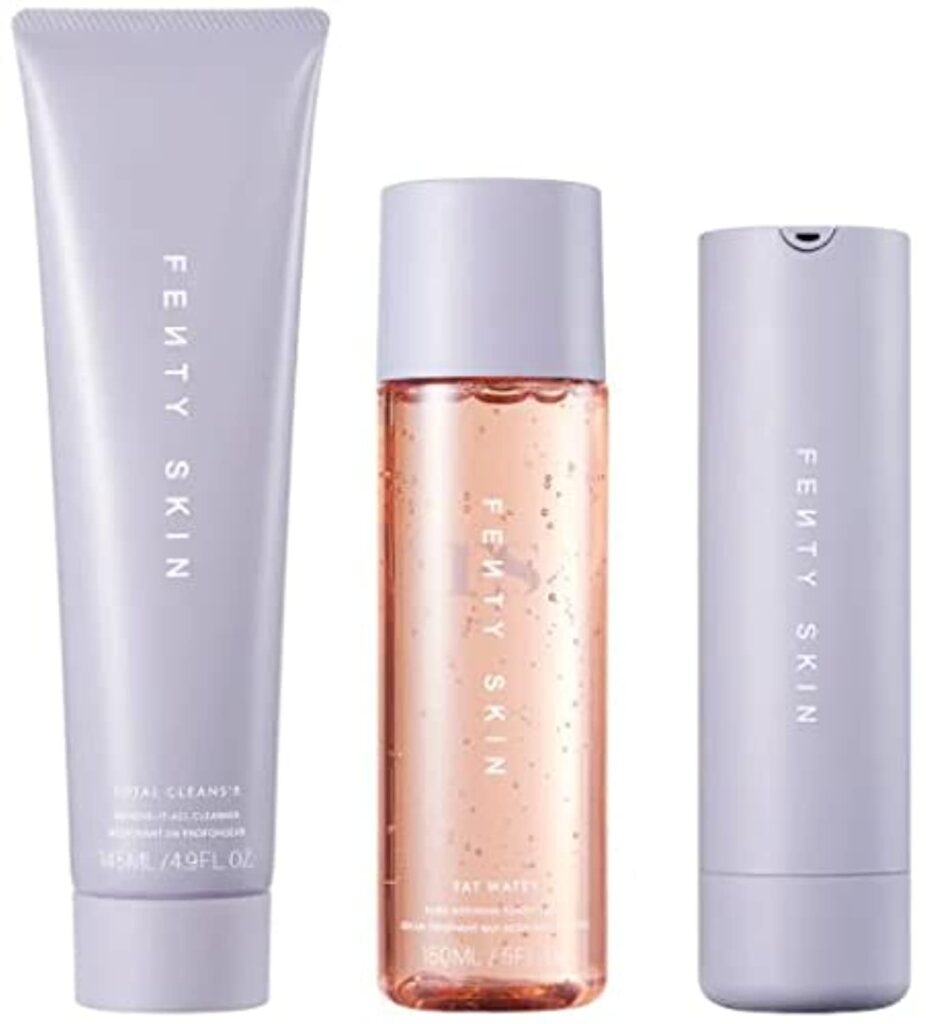
Rihanna nailed it — this hybrid moisturizer with SPF has no white cast, smells divine, and leaves your skin glowing (not greasy).
- Best for: Everyday wear under makeup or alone
- Tint: Clear, no white cast at all
- Pros: Lightweight, refillable, skin-brightening ingredients
- Cons: Light SPF (use more if outdoors long)
4. Unsun Mineral Tinted Face Sunscreen SPF 30

Made specifically for medium to dark skin tones, Unsun offers a subtle tint with mineral protection and no flashback. Clean beauty lovers adore this brand.
- Best for: Natural finish with skin-loving ingredients
- Tint: Medium/dark tones (multiple shades)
- Pros: Reef-safe, women-of-color founded
- Cons: Slightly thicker texture
5. Live Tinted Hueguard Invisible Sunscreen + Primer
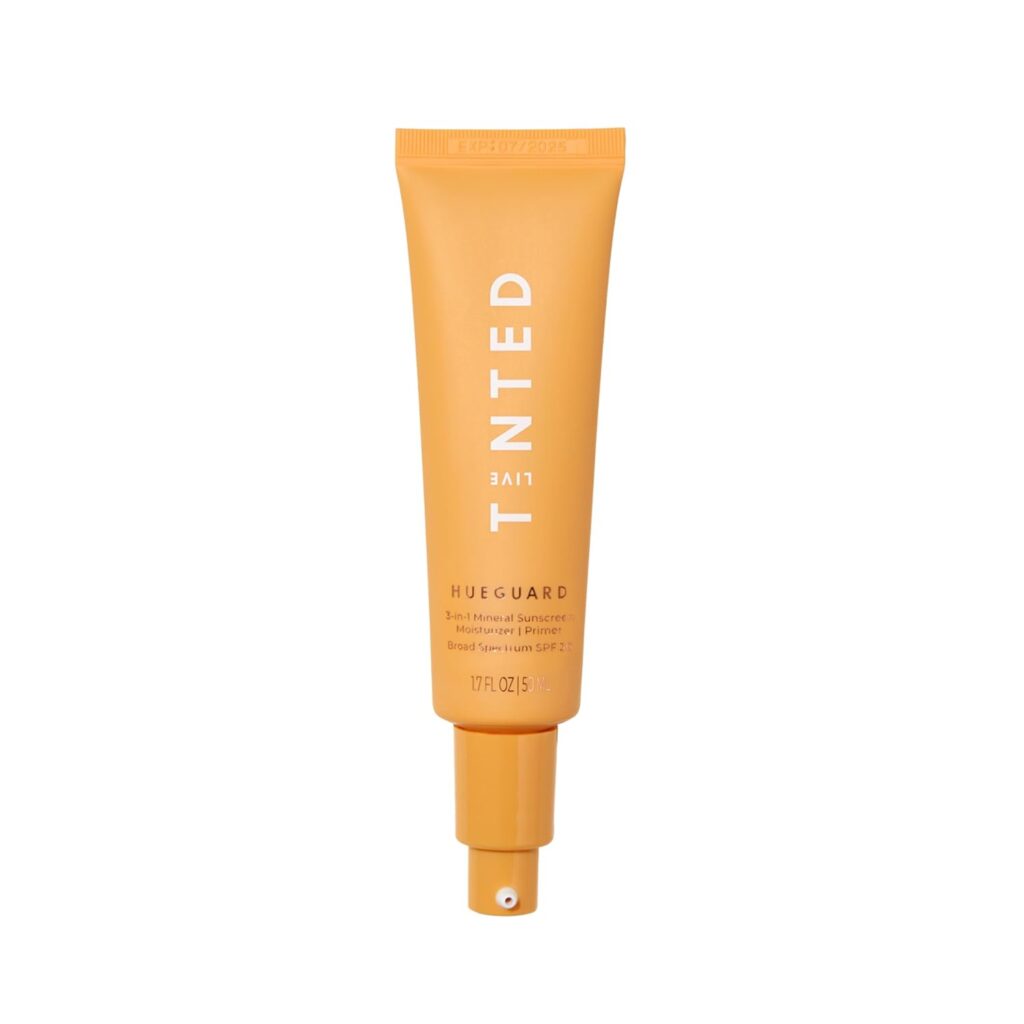
This multitasking product is part primer, part SPF, part skincare. No tint, but completely transparent — and designed to work under makeup or on bare skin for a natural finish.
- Best for: All-day wear + makeup prep
- Tint: None (clear formula)
- Pros: 3-in-1, zero cast, clean ingredients
- Cons: On the pricier side
Quick Comparison: Best Tinted Sunscreens for Dark Skin
| Product | Tint & Finish | Best For | SPF | Link |
|---|---|---|---|---|
Black Girl Sunscreen Make It Matte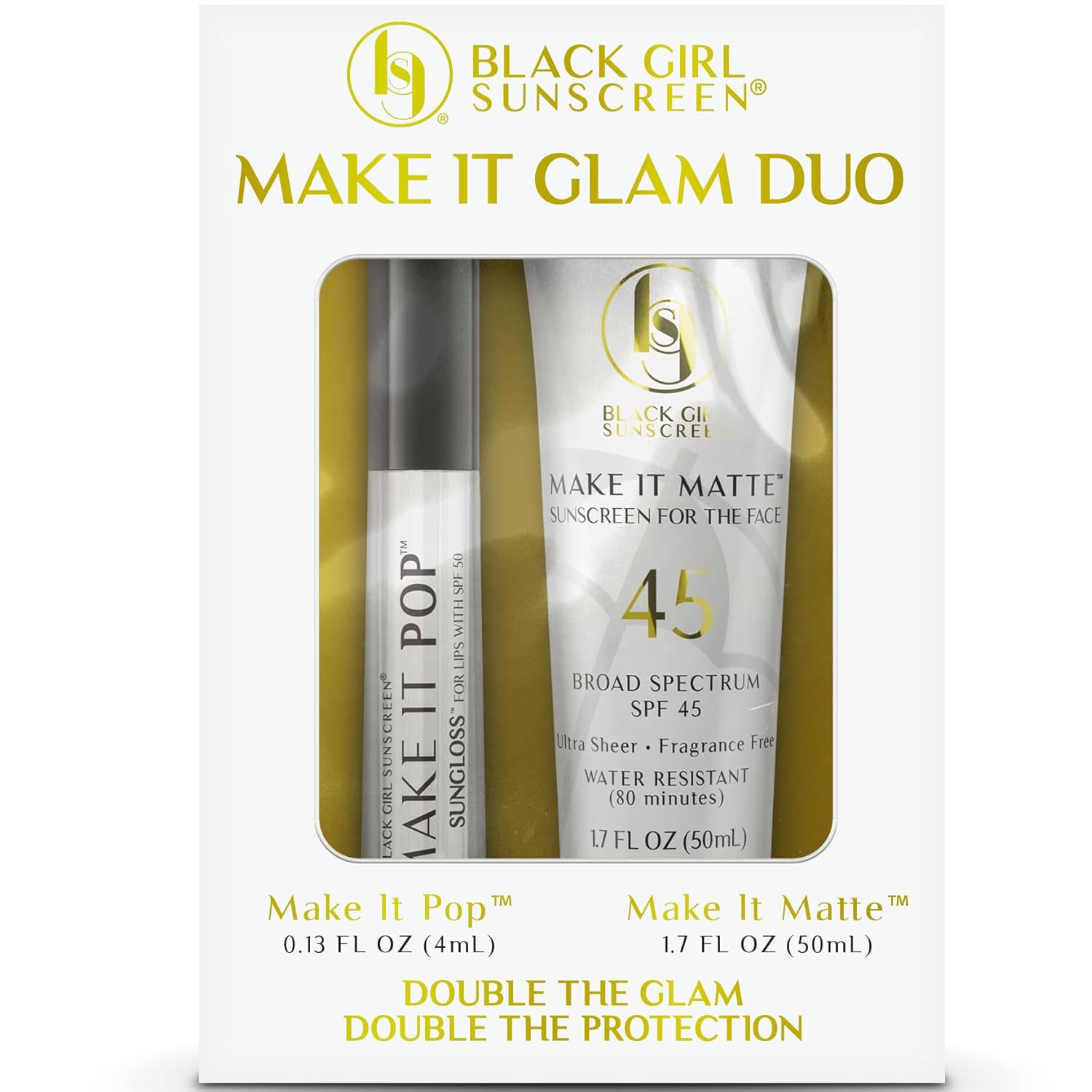 | Sheer bronze, matte | Oily or combo skin | SPF 45 | Buy |
EltaMD UV Elements Tinted | Neutral tint, dewy | Sensitive/mature skin | SPF 44 | Buy |
Fenty Skin Hydra Vizor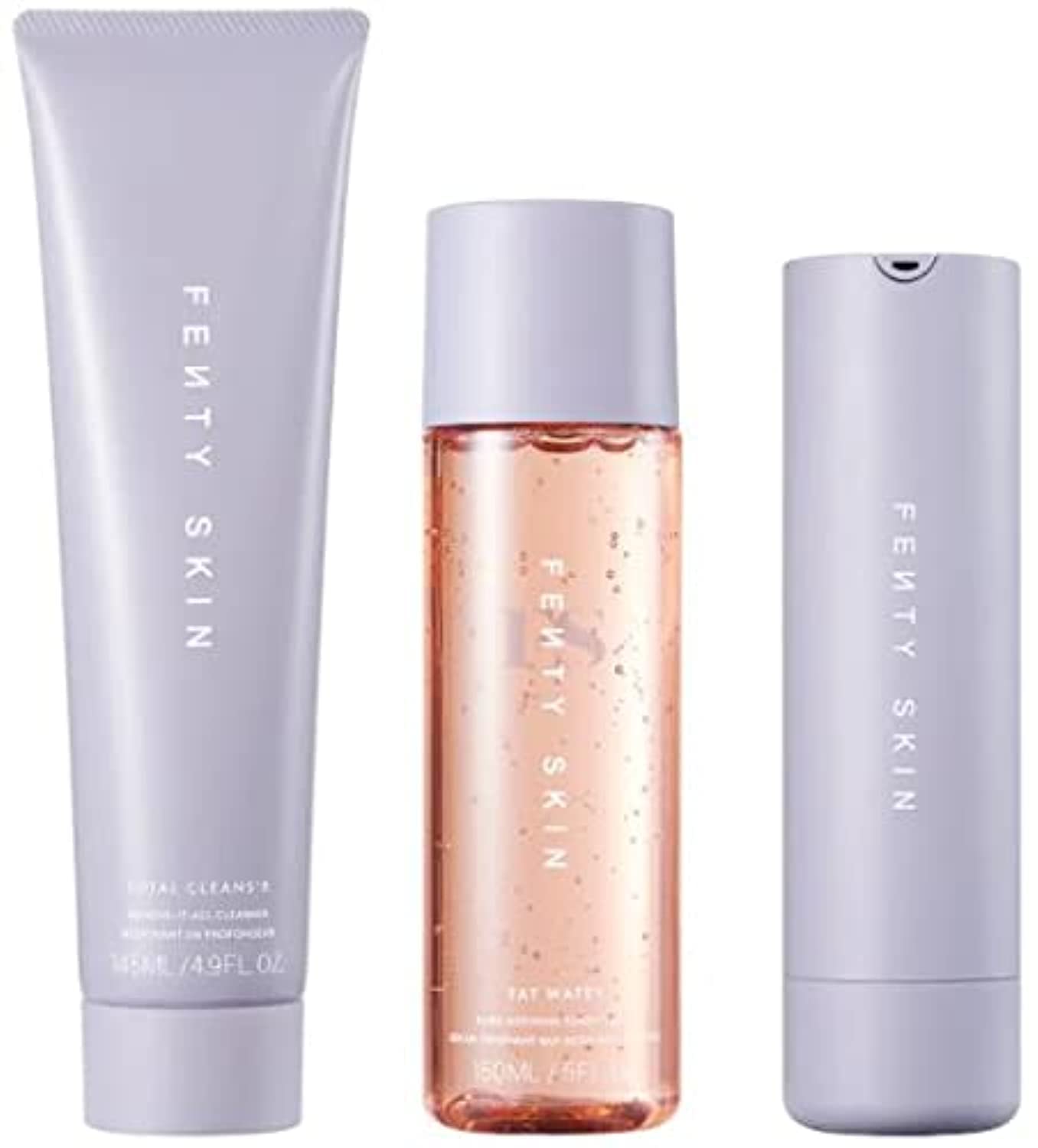 | No tint, clear finish | Everyday wear | SPF 30 | Buy |
Unsun Tinted Sunscreen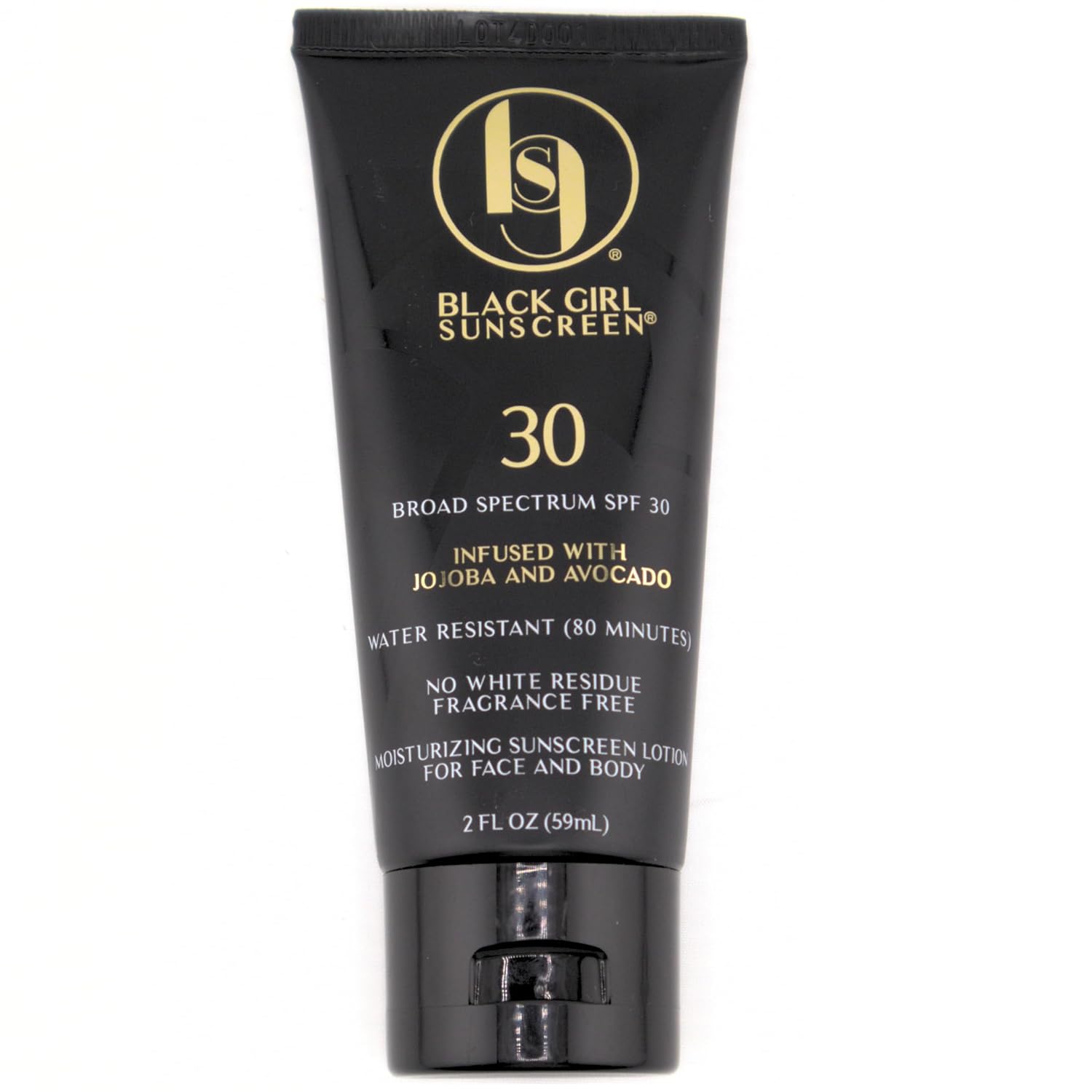 | Medium/Dark, natural | Clean beauty users | SPF 30 | Buy |
Live Tinted Hueguard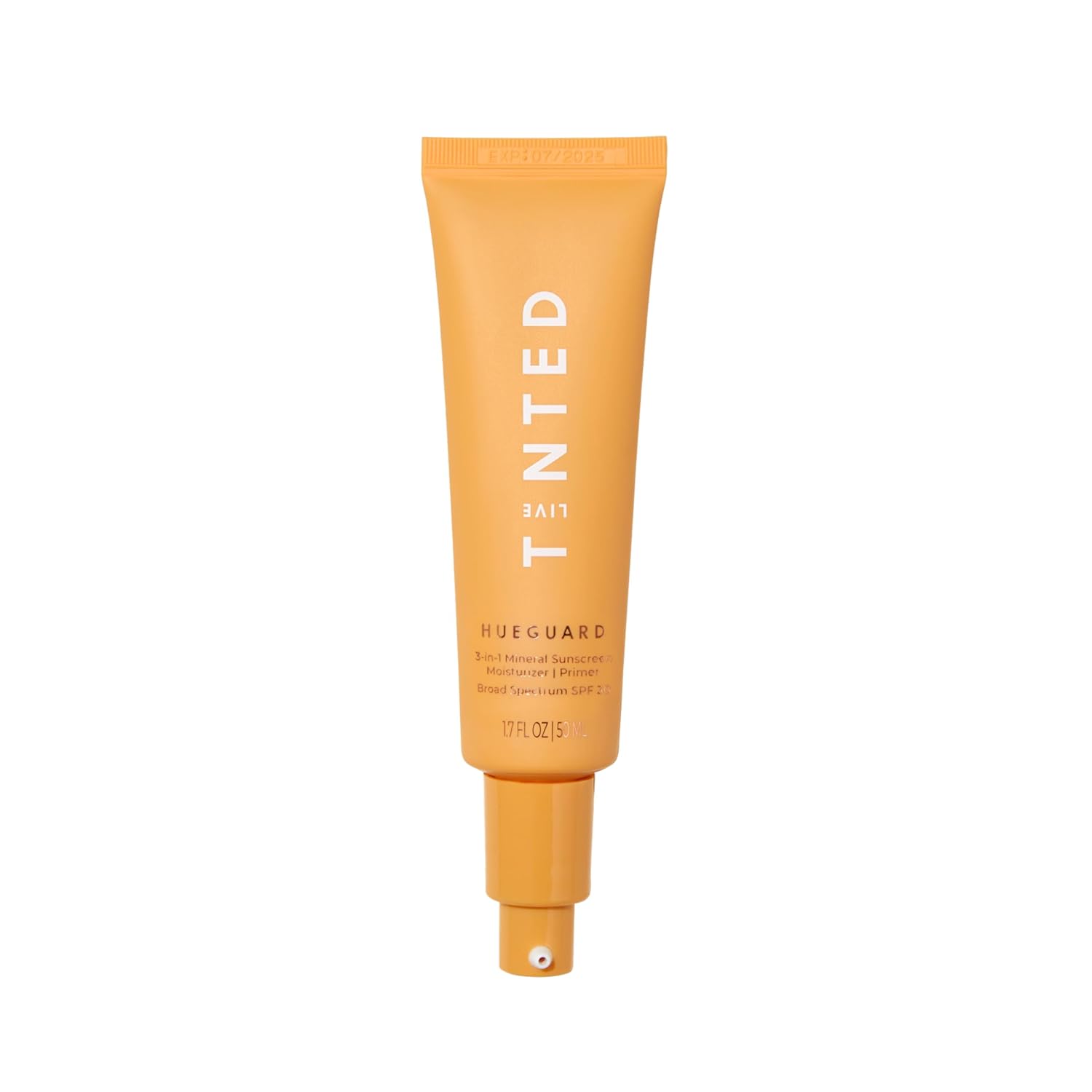 | No tint, invisible | Makeup lovers | SPF 30 | Buy |
How to Apply Tinted Sunscreen (With or Without Makeup)
A tinted sunscreen can do double duty as both SPF and a light base — but how you apply it makes all the difference. Whether you’re going bare-faced or full glam, here’s how to get the most out of your tinted SPF.
Everyday Use (No Makeup)
For those days when you just want glow and go — tinted sunscreen is all you need.
- Start with clean, moisturized skin
- Apply a full fingertip amount of tinted sunscreen to your face
- Use fingers, brush, or sponge to blend evenly into skin
- Let it sit for 1–2 minutes before adding lip balm or brow gel
Bonus: Some formulas like Black Girl Sunscreen Make It Matte or Unsun give a soft-focus finish that mimics foundation — without the effort.
Under Makeup (Primer Style)
Using tinted sunscreen as a primer? Smart move. It helps even your base and adds glow while protecting.
- Follow your usual skincare routine
- Apply tinted sunscreen and let it set (2–3 min)
- Layer lightweight foundation or skin tint over it
- Set with translucent powder or spray if needed
💡 Tip: Hueguard by Live Tinted is made for this — it’s SPF + primer in one.
Reapplying Throughout the Day
You should reapply sunscreen every 2 hours — even tinted ones. Here’s how to do that without ruining your face:
- Use a sponge: Dab tinted SPF gently over existing makeup
- Try a powder SPF: Lightweight and easy to carry
- Opt for SPF sticks or mists: Reapply without friction
Reapplying might seem like a chore, but your future glow will thank you.
FAQs: Tinted Sunscreen for Dark Skin
Does tinted sunscreen work on Black skin?
Yes! Tinted sunscreens are ideal for melanin-rich skin because they help even out tone while providing UV and visible light protection — especially when they contain iron oxides. Just make sure to pick a shade that blends with your undertone.
What’s the difference between tinted and regular sunscreen?
Regular sunscreens (especially mineral ones) can leave a white or gray cast on dark skin. Tinted sunscreens include pigments like iron oxides to match skin tones and avoid the ashy finish. Many also act as light foundation or primer.
Can I wear tinted sunscreen instead of makeup?
Absolutely. Many tinted sunscreens give sheer to medium coverage and double as BB creams. They’re perfect for no-makeup makeup days or when you want to keep things light but still protected.
How often should I reapply tinted sunscreen?
Every 2 hours — especially if you’re outdoors or sweating. Use a sponge, mist, or stick format to reapply over makeup without disturbing your look.
Will tinted sunscreen clog my pores?
Most quality tinted SPFs are non-comedogenic (won’t clog pores), especially if labeled oil-free or formulated for acne-prone skin. Look for brands like EltaMD, Fenty Skin, or Black Girl Sunscreen.
Can I use tinted sunscreen at night?
Technically yes — it’s safe. But sunscreen is only needed during the day. At night, switch to skincare products like serums or moisturizers designed to treat and repair.
Final Thoughts: Your Skin, Your Glow, Your SPF
Gone are the days when sunscreen meant choosing between protection or looking like a ghost. With the right tinted sunscreen, you don’t have to compromise. You can guard your melanin, even out your tone, and show up glowing — every day.
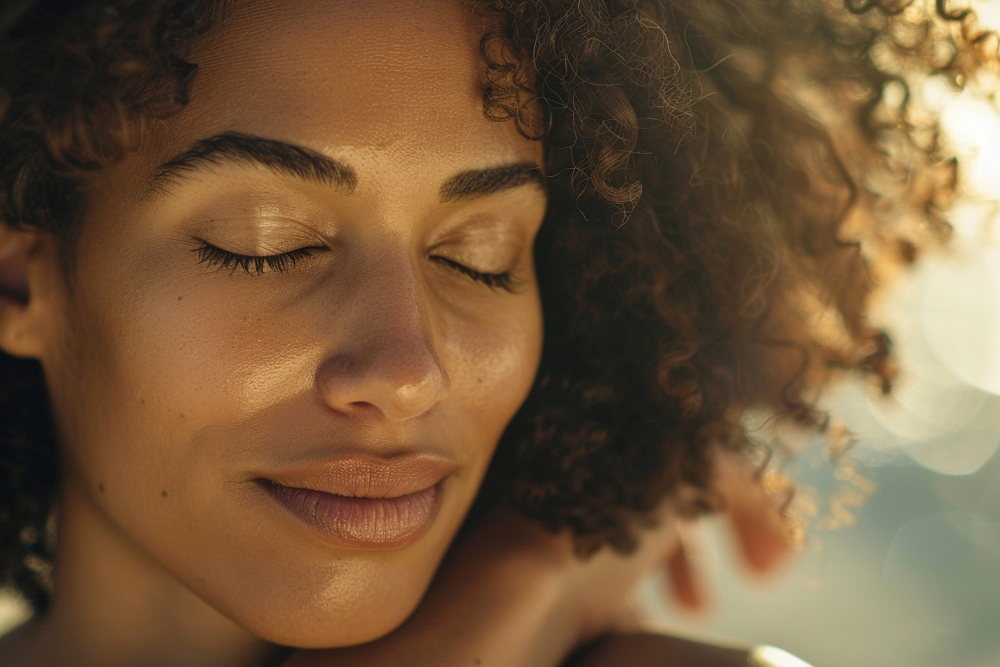
Whether you’re rocking bare skin or a full beat, your tinted SPF should work with your complexion — not against it. Choose smart, reapply often, and never underestimate the power of protected melanin.
Keep Reading:
- 👉 Best Sunscreens for Dark Skin (No White Cast!)
- 👉 Top Serums for Dark Spots on Black Skin
- 👉 How to Build a Skincare Routine for Black Women
Subscribe to the Glow Letter
Want weekly tips, product guides, and real skincare advice for melanin-rich skin? Join the Glow Letter — it’s free, honest, and written with your glow in mind.
💬 Let’s Talk SPF
Which tinted sunscreen works best for your skin tone? Got a favorite we missed? Drop a comment below and help other Black and Brown beauties find their perfect match. Sharing is glowing.


